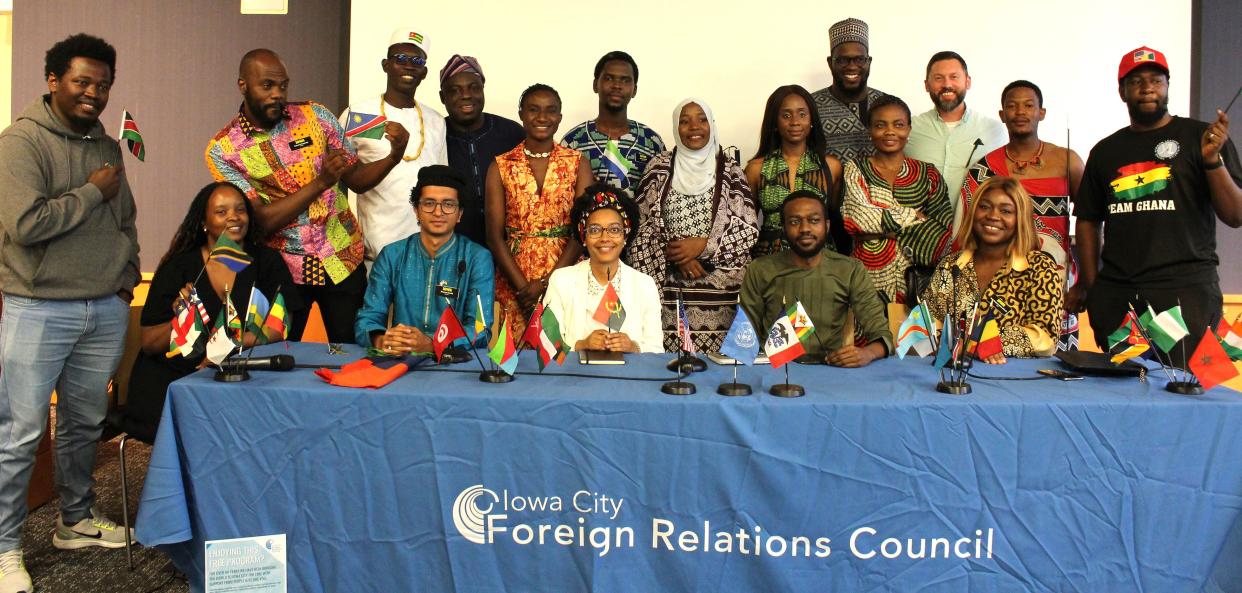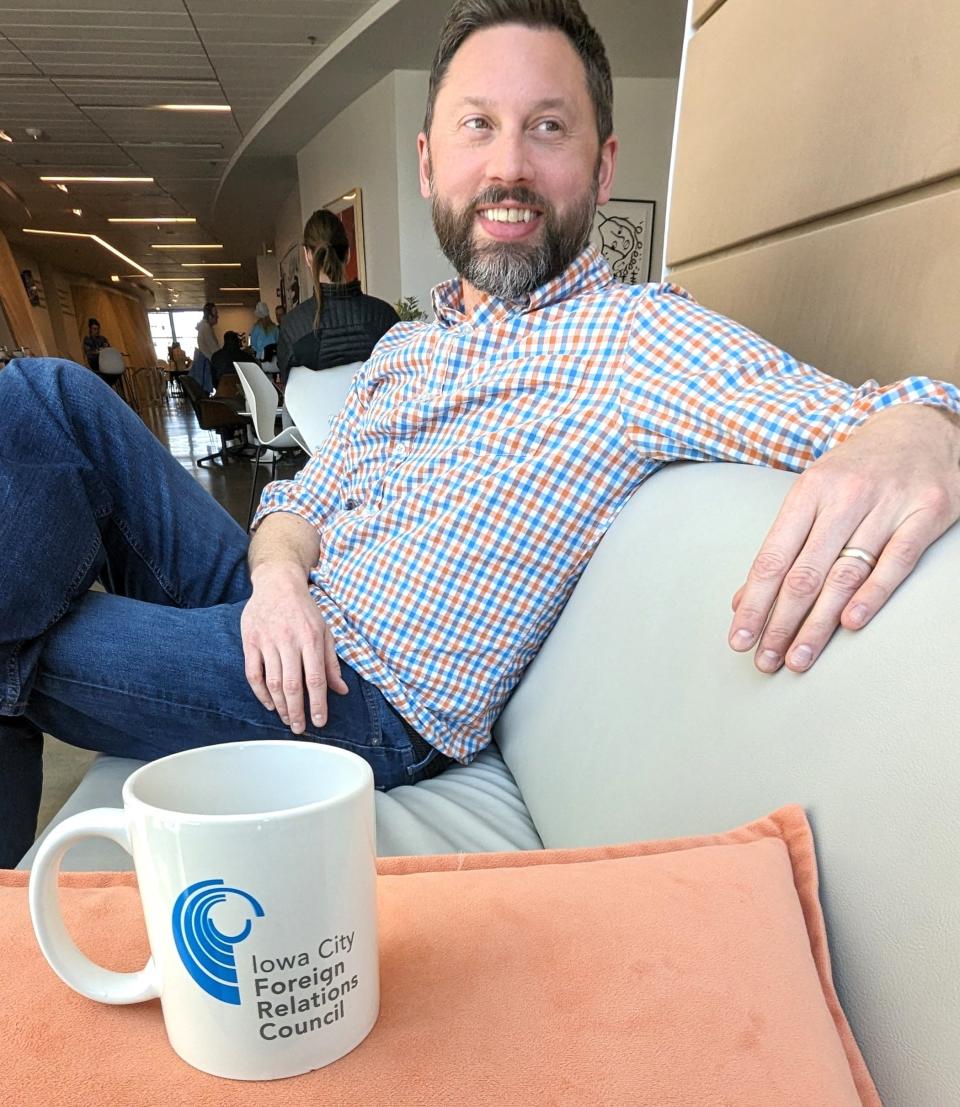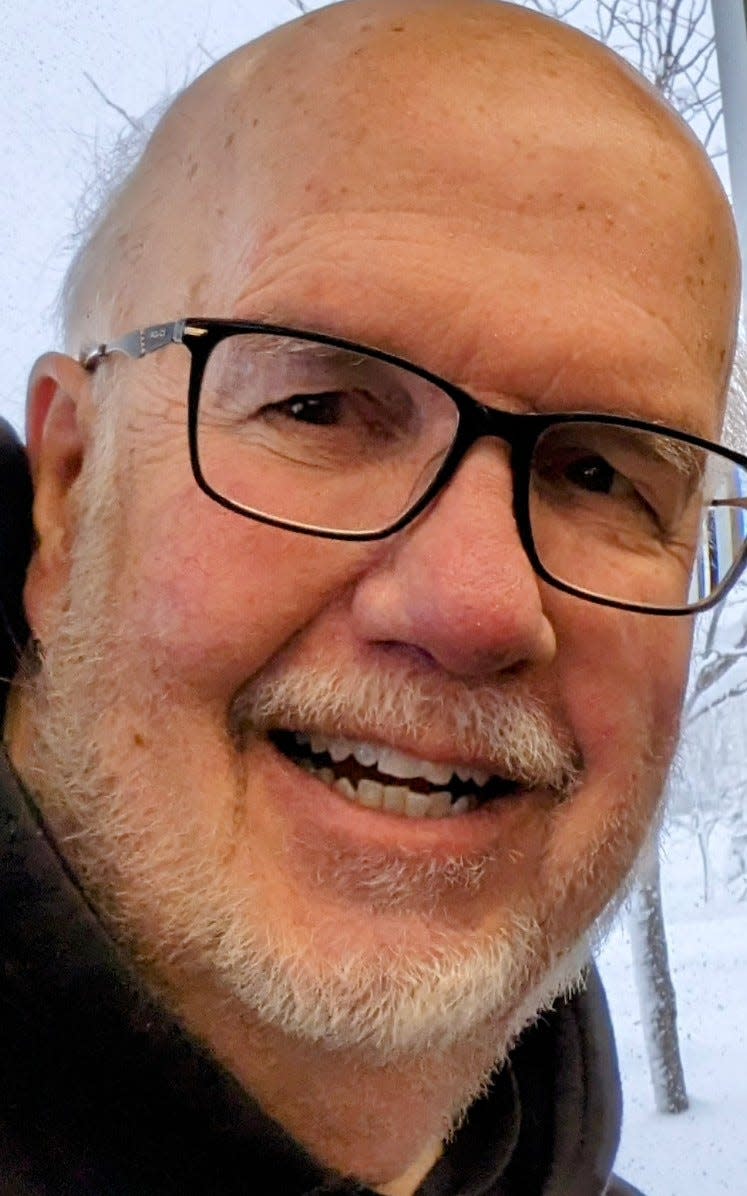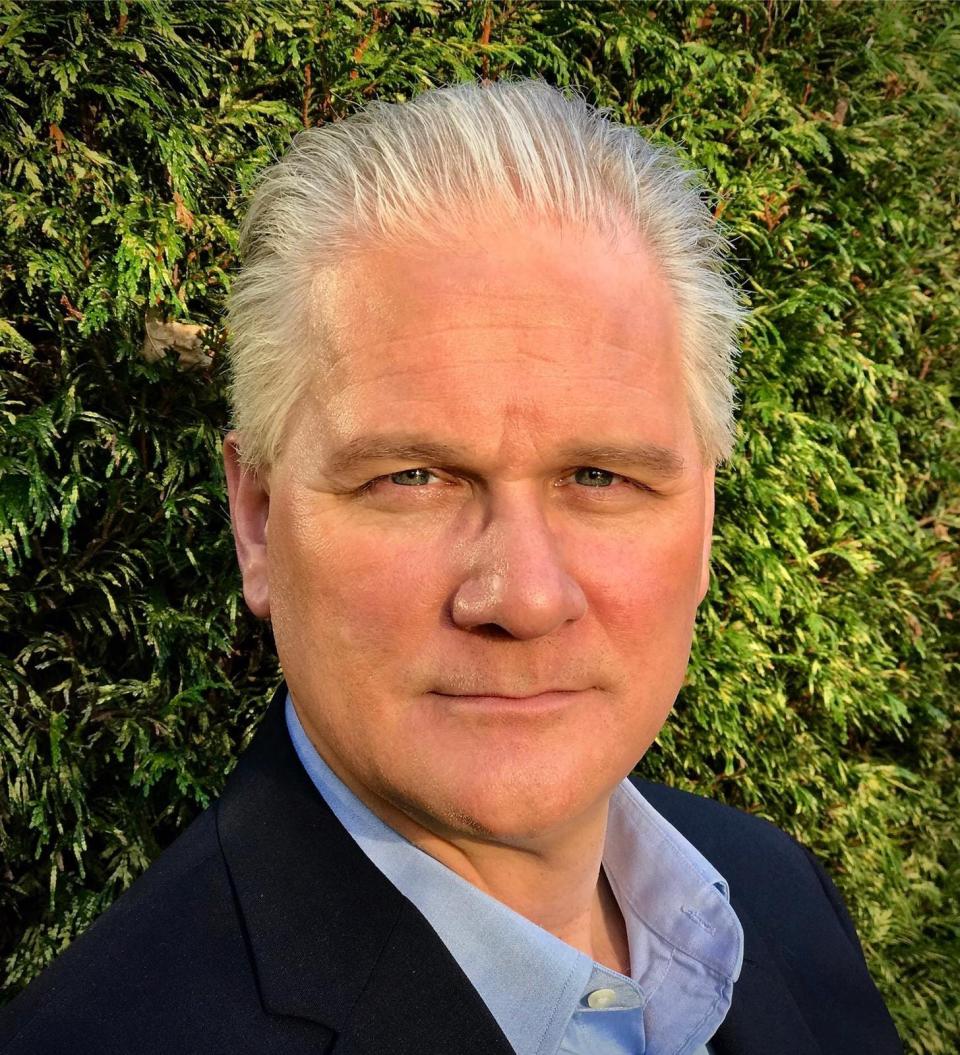World Empathy: 40 years later, IC Foreign Relations Council sees urgency for Iowans to ‘connect globally’

Refugees, immigrants, asylum-seekers.
Wars in Ukraine, Gaza, Africa.
Discord with Russia, China, Iran.
Worldwide fears for democracy.
If there was ever a time for more global understanding of an increasingly violent and complicated world, it’s now. And after 40 years of existence, the Iowa City Foreign Relations Council (ICFRC) is reenergized to its educational task.
That’s according to Peter Gerlach, the ICFRC’s new executive director, a catalyst behind this local non-profit’s major new thrust to encourage Iowans toward more awareness and empathy for people from around the world, be they here or abroad.
“I see it as my calling in life,” Gerlach told me recently over Fix! coffee in the Chancey building downtown. “To have people see the world as both out there ? and right here.”
With board support, Gerlach has worked to expand the scope and reach of this group as it returned to in-person programs in this post-pandemic period. He reviewed for me a laundry list of recent changes:

New location, diversity
The council's programs have been moved to the Iowa City Public Library, a community-centered and inclusive space with access to excellent equipment for recording and streaming. Here, the group hosts both in-person and virtual speaker presentations on global topics, roughly 25 events per year.
Donors, partnerships, and fund-raising efforts have been expanded. Partners include the library, the University of Iowa, FilmScene, Humanities Iowa, Global Ties Iowa, the Stanley Center for Peace and Security, and many others. ICFRC operates on a $75,000 budget with Gerlach and Communications Director James Dykeman as part-time paid staff, working with three UI student interns.
Gerlach notes that the board of directors has become more diverse, and there is active outreach to ensure that refugees, immigrants, and young people in the area are included in audiences. Attendance at live video and in-person programs at the library has blossomed from previous years to about 50 to 80 persons per session.
Emphasis is now on securing prominent foreign speakers on current issues through live feeds from wherever in the world they are located. Some recent topics: Russia/Ukraine entangled histories, Australian politics, the role of women peacekeepers in the world, surviving dictatorships, democracy and climate change in Brazil, and the health crisis in Nigeria. A Palestinian program is planned for later this spring.
“We’re becoming more intentional about who we get to speak and what kinds of things we want to be a part of,” Gerlach said.
He notes that probably the most significant change is developing a series of programs on a single topic of local and global concern.
ICFRC hosted a six-program series last year featuring panels of experts on refugees and immigrants in Iowa, based partly on an International Studies course Gerlach teaches at the UI. The series featured input from immigrants living in Iowa who came from Mexico, Congo, Croatia, Afghanistan, and many other nations. Gerlach co-authored with Madison Black a detailed 42-page report on the series, which you can find at www.icfrc.org.
“I’m really proud of this series,” he said. “It was all about impact – making folks aware of what refugees and immigrants experience here.”
This fall, the organization will offer another series of panel presentations on democracy around the world, in a lead-up to the US elections.
“What could be more important than that?” Gerlach said.
More: Portrait of Caitlin Clark crafted by University of Iowa dental student using 720 Rubik's Cubes

Peace Corps influence
Gerlach was raised in Wisconsin in a bicultural and bilingual home, due to his father’s German heritage. He later joined AmeriCorps, then spent two years in Mongolia with the Peace Corps teaching English.
“Everything about my life was international,” he told me. “I knew from a young age that the world was wide and that it was filled with wonderfully diverse people and cultures.”
He later focused his doctoral studies in international education at Syracuse University. Before joining the UI, he was director of international affairs for Coe College. He joined the ICFRC board during the pandemic and was named its executive director last year.
“Today, my whole existence is built around global diversity,” he said. “I often spend more time with people from around the world than with people who look like me. What the ICFRC does is also absolutely important to interculturalism and DEI (diversity, equity, and inclusion).”
Gerlach is now grateful to pursue his passion in a truly international community.
“The world has literally come to Iowa City,” he told me. “Our goal is to expand the global connections we have here across the state.”
Gerlach hopes people who attend ICFRC programs leave with a yearning to learn about, welcome and get to know on a personal level their neighbors or co-workers who are from other countries and cultures.
“We need to promote empathy for the peoples of the world,” he said. “Global connections matter. We hope that our programs have impact, and that people will take action to support that.”
The executive director added that ICFRC is grateful for the support from individual donors over four decades. He hopes the community will continue to support its work and notes that various donor options are offered on its website.
More: Iowa City considering Pagliai's Pizza building as historic landmark, but landlord objects

NPR’s Langfitt highlights Iowa City Foreign Relations Council's final event April 10
Frank Langfitt, a prominent global democracy correspondent for National Public Radio, will be the featured speaker the Iowa City Foreign Relations Council's 40th anniversary event of on Wednesday, April 10.
The program will be held from 4:30 p.m. to 6:30 at the Old Capitol Museum in downtown Iowa City, with refreshments served in the first hour. Admission is free, but participants for both the streamed event and the in-person event are asked to register at www.icfrc.org.
Langfitt has reported from more than 50 countries and territories since the late 1990s and will address the changing geo-political landscape and its impact on democracy. His experiences range from driving a free taxi in Shanghai to reporting in Ukraine during the Russian invasion and most recently covering the Israel/Gaza war.
He will be joined by Ben Kieffer, host of the “River to River” daily noon talk show on Iowa Public Radio and a 30-year award-winning public radio personality.
Richard Hakes is a freelance columnist for the Iowa City Press-Citizen.
This article originally appeared on Ames Tribune: Hakes: Iowa City's Foreign Relations Council celebrating 40 years of local impact
Solve the daily Crossword

